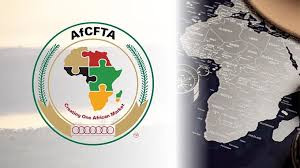
The National Biotechnology Authority says Zimbabwe must venture into genetically modified organism (GMO) seed production to produce drought-tolerant crops.
The call National Biotechnology Authority chairperson Zeph Dhlamini comes as the El Niño-induced drought has plagued the 2023/24 agricultural season.
President Emmerson Mnangagwa has declared the drought a state of disaster to marshal US$2 billion to stave off famine.
Presenting at an online event, Drought Conditions and Management Strategies Conversation, Dhlamini said experts needed to demystify and push for public awareness of the importance of biotechnology implementation in the country.
The online event was hosted by Financial Grind.
“As far as crop varieties are concerned, there is a big gap between what they were bred for and the present environmental challenges,” Dhlamini said.
“I am sure those into crop production have noted that popular varieties are no longer expressing their known characteristics (phenotype), cabbages are getting tiny by the day even with food agronomic practices, onions established early this year failed because of the heat wave, they couldn’t produce more than three leaves. In contrast, in the seedbed, there is not much uniformity in the ripening of some crops,” he said.
Biotechnology encompasses the basic and applied sciences of living systems and the engineering aspects required to exploit their bioprocesses to bring products to the marketplace.
- Research institution pushes for drought tolerant GMO seed
- Court orders ex-NBAZ CEO to return company property
Keep Reading
“... pests and diseases are more diverse and destructive than in the past. We cannot be food secure by growing OPVs (open pollinated varieties). Ninety nine percent of maize produced by Zimbabwean farmers are hybrids. OPVs are low-yielding. Biotechnology can be used to improve them,” Dhlamini said.
He said GMO does not necessarily mean “something terrible cooked up in a laboratory”.
“I understand it is essentially cross-breeding to alter a particular gene in something. There is a need for public awareness of GMO crops. They are not the monsters that they are portrayed as.”
Zimbabwe has a ban on GMO production.
“It may help for people to know that we are already eating GMO maize; we started importing it before the drought was declared a national disaster,” Dhlamini said.
Seed producer, Seed Co Limited, is already developing hybrid seed which are drought resistant.
GMOs have been shunned over the years owing to their potential long term health effects due to them being created in a lab.
The National Biotechnology Authority is an autonomous research and development institution mandated to develop Zimbabwe through the application of both conventional and cutting-edge biotechnologies.











